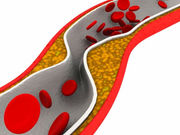Improvements in RA Disease Activity With Bariatric Sx
Fewer patients had moderate to high disease activity, more in remission at 12 months post-op
Seven Behaviors Suggested to Improve ‘Art of Medicine’
Seven behaviors promote more consistent practice of interpersonal aspects of medicine
Paracentesis Underutilized in Patients With Cirrhosis, Ascites
In-hospital mortality down with paracentesis use; trend toward reduction in mortality for early tx
SABCS: Laser Ablation May Be an Alternative Breast Cancer Tx
Procedure shows promise on tumors up to 2 cm in diameter, but more study is needed
Interlobar Collateral Ventilation Impacts EB Valve Outcomes
Researchers find more success in emphysema tx when stricter criteria used in patient selection
SABCS: In Early Breast CA, Breast-Conserving Tx Beats Mastectomy
Study suggests 21 percent greater odds of survival after 10 years
Timing May Be Key to Success for Early Breast CA Treatment
Scheduling the operation as soon as possible after diagnosis seems to raise odds for survival
Guidelines Formulated for Arterial Conduits in CABG
Use of arterial grafts should be part of the heart team discussion for determining optimal surgical approach
Staged Surgical Excision Superior for Treatment of Lentigo Maligna
During mean follow-up of 60 months, recurrence seen in four patients out of cohort of 100
Depression Not Uncommon Among Resident Physicians
Grueling medical training may help explain finding



















